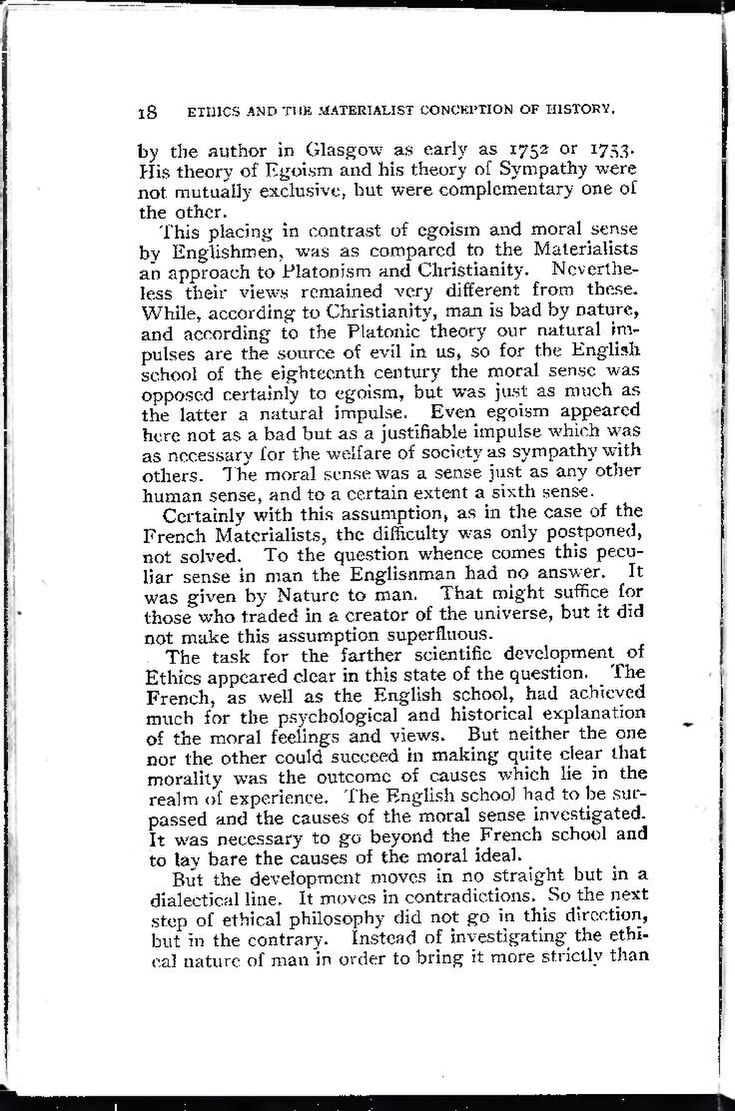by the author in Glasgow as early as 1752 or 1753. His theory of Egoism and his theory of Sympathy were not mutually exclusive, but were complementary one of the other.
This placing in contrast of egoism and moral sense by Englishmen, was as compared to the Materialists an approach to Platonism and Christianity. Nevertheless their views remained very different from these. While, according to Christianity, man is bad by nature, and according to the Platonic theory our natural impulses are the source of evil in us, so for the English school of the eighteenth century the moral sense was opposed certainly to egoism, but was just as much as the latter a natural impulse. Even egoism appeared here not as a bad but as a justifiable impulse which was as necessary for the welfare of society as sympathy with others. The moral sense was a sense just as any other human sense, and to a certain extent a sixth sense.
Certainly with this assumption, as in the case of the French Materialists, the difficulty was only postponed, not solved. To the question whence comes this peculiar sense in man the Englisnman had no answer. It was given by Nature to man. That might suffice for those who traded in a creator of the universe, but it did not make this assumption superfluous.
The task for the farther scientific development of Ethics appeared clear in this state of the question. The French, as well as the English school, had achieved much for the psychological and historical explanation of the moral feelings and views. But neither the one nor the other could succeed in making quite clear that morality was the outcome of causes which lie in the realm of experience. The English school had to be surpassed and the causes of the moral sense investigated. It was necessary to go beyond the French school and to lay bare the causes of the moral ideal.
But the development moves in no straight but in a dialectical line. It moves in contradictions. So the next step of ethical philosophy did not go in this direction, but in the contrary. Instead of investigating the ethical nature of man in order to bring it more strictly than
